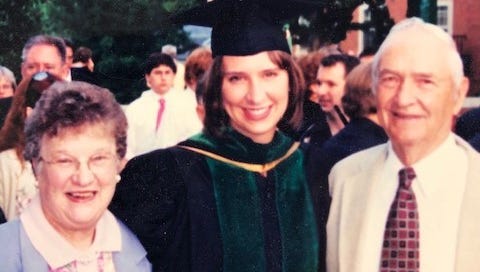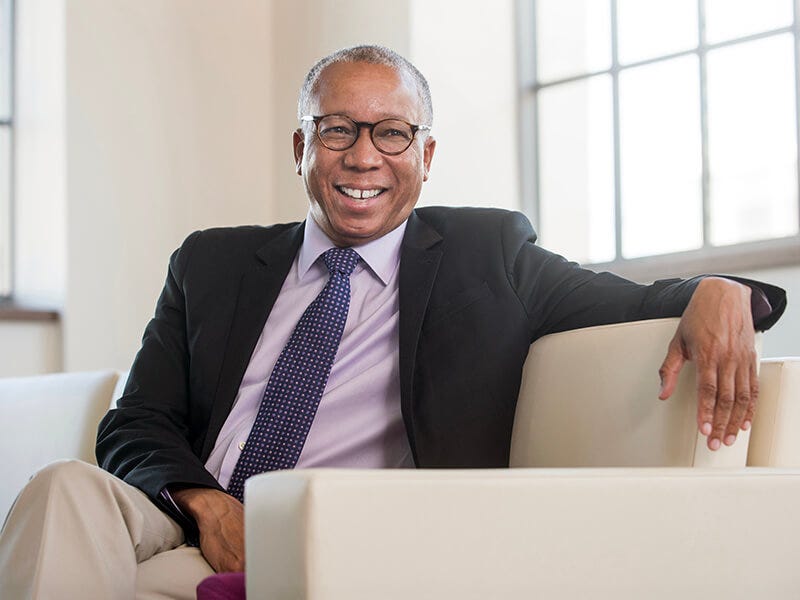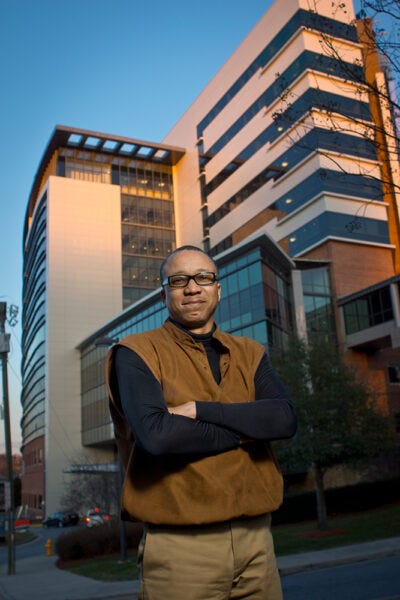Every year, I smile when I see pictures of new doctors posing with their medical school diplomas. Last year, this ritual took on a more complex tone when my longtime mentor, friend and boss died from complications related to metastatic prostate cancer; a diagnosis he lived with for years but only shared with us a few months before his death.
I posted a eulogy for him on LinkedIn and the response was overwhelming. He was a well-respected leader in oncology, but I was surprised when people from around the world shared stories of how he had personally touched their lives.
As the first anniversary of his death nears, I’m still processing his absence. I miss him. I also remain in awe of all he was able to accomplish while living with cancer.
No matter where you are in relation to a cancer diagnosis, please take a moment this week to celebrate yourself and the people around you. You are a survivor, and I am so glad that you are here.
In the summer of 2003, I found my professional calling as a wide-eyed third year medical student. On the oncology service, I met humans facing tough questions. While others shied away, I felt comfortable in these rooms. Caring for people with cancer was gritty and real. I loved it and I loved them.
Later that year, I discovered radiation oncology during a conversation with a neurosurgery resident named Melanie. One of Melanie’s many responsibilities was to supervise medical students like me - partly to teach us things and partly to make sure we didn’t hurt anyone.
Melanie and I were checking our email in the hospital library when she asked me what field of medicine I was interested in. I told her that I wanted to take care of cancer patients. That I was going to be an oncologist.
As soon as the words were out of my mouth, Melanie stopped typing, turned to me, and with the directness of a neurosurgeon said, “If you just want to work with cancer patients, go right now and see if it’s too late for you to get into radiation oncology.”
I looked at her and two thoughts came to mind: 1) What was radiation oncology? and 2) We were due back in the operating room shortly. This wasn’t the time to explore a new specialty.
I started to protest, but Melanie shook her head, pointed towards the library door, and ordered “GO!”
With no idea where the department of radiation oncology was, I left the library and made my way to the hospital lobby. There I joined the mass of patients also trying to find their way to unfamiliar clinics. Finally, I spotted a small, grey sign guiding me toward the basement.
Opening a heavy metal door, I walked into a non-descript, mostly empty waiting room and presented myself to the woman at the desk. I stammered that I was a medical student (newly) interested in radiation oncology. She motioned for me to wait and picked up the phone.
As I sat, I racked my brain to recall something from the one lecture I had on radiation. The gist was they used x-rays to treat patients with cancer, but the field seemed strange and highly technical, so I’d brushed it off. No one ever mentioned radiation oncology again until that day.
The receptionist buzzed me through the door next to her and directed me to an office in the back. I sat down on one of two chairs facing a crowded, disorganized desk. What was I doing here? I thought. A few moments later, a thin man with close cropped salt and pepper hair walked in, closed the door, and sat down.
Dr. William Blackstock introduced himself and asked why I wanted to go into radiation oncology. When I admitted that my interest had started just 15 minutes ago, he threw his head back and laughed.
I waited nervously for him to stop, wondering to myself if “because a neurosurgery resident told me to” was a good enough reason to go into radiation oncology.
“I want to work with cancer patients,” I blurted out as he surveyed me through his wire-rimmed glasses. I waited while he contemplated my answer.
I must have passed whatever internal test he was running as his next words were, “We’ll get you fixed up, Wentworth. Stop by the resident’s room and tell them you need a project. In the meantime, stay out of trouble.”
As I left his office and again found myself wandering now trying to find the radiation oncology residents’ office, I questioned what I had just gotten myself into.
Many years later when the name of a longtime colleague appeared on my dashboard display, I knew the news was not going to be good. “Dr. Blackstock passed yesterday,” he said, and I closed my eyes. He shared the basics, we exchanged a few more words and I asked him to keep me posted on arrangements. I hung up and my eyes returned to the road.
Usually an open book, Dr. Blackstock had only revealed his terminal diagnosis to us a few months prior, promising to lead us to the end of the year and refusing a generous sabbatical offered by our CEO. “I can’t go off and leave you guys right now. I just can’t do that,” he declared during one faculty meeting.
I had not known a career without this man. As a third-year medical student with a late interest in radiation oncology, I wandered into his office knowing that I wanted to work with cancer patients and not having a clue about radiation oncology. “We’ll get you hooked up,” he told me. And he did.
We worked on a report on the treatment of early-stage rectal cancer which was accepted for oral presentation at the inaugural ASCO GI conference in San Francisco. Standing in the green room, he reviewed my talk and said, “You can’t say that Wentworth,” inducing a panic in my fourth-year medical student heart that had memorized those slides backwards and forwards.
After my nervous presentation, experts in the room peppered me with questions that I had little context or experience to answer. I’d never treated a rectal cancer patient! Dr. Blackstock stepped to a microphone and swatted away critiques with his characteristic soft smile and downward gaze. A legendary researcher congratulated me afterwards.
“Stay out of trouble, Wentworth,” Dr. Blackstock said as he left the ballroom.
For those of us on the receiving end of his gruff rebuffs, when the shit hit the fan, we knew he was in our corner. He staunchly defended his people and showed up when it mattered. We also always knew that no matter how frustrated he was with us, we were always welcome back into the fold.
When I found myself unemployed and wanting to stay in the area, he took my call and invited me to discuss starting a survivorship program. I met with Blackstock and other cancer center leaders who just 10 years prior had guided my career. It was a surreal experience.
“Stay out of trouble, Wentworth,” he said as he left the conference room and an employment contract arrived in my inbox a few weeks later.
Over the years, Dr. Blackstock and I spoke of our marriages, children, horses, and travel. He retold his favorite stories in the physician workroom, leaning back in his chair, hands folded in front of him, giggling over a shared inside joke. Dr. Blackstock encouraged me to follow my gut and opened doors behind the scenes to help me succeed.
I feel certain he kept us all in the dark so as not to burden us with his struggles. And to avoid being on the uncomfortable receiving end of our love and attention. Even the week before he died, he focused firmly on his family, our department, and our cancer center.
The last time I saw Dr. Blackstock, he visited me at a clinic I was covering. As he was leaving, I hugged him and watched his thin figure shuffle slowly to his car. He turned in the sun and said softly “Stay out of trouble, Wentworth.”
Yes, sir, I whispered as he got in his car, you too.
Thank you, Dr. Blackstock. For everything.









I am forever grateful that he “fixed you up.”
A beautiful beginning and a poignant end. Love to hear these stories.